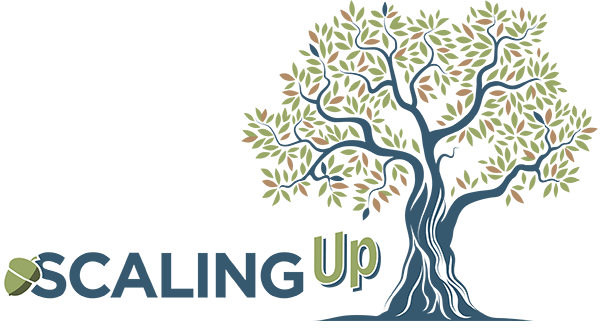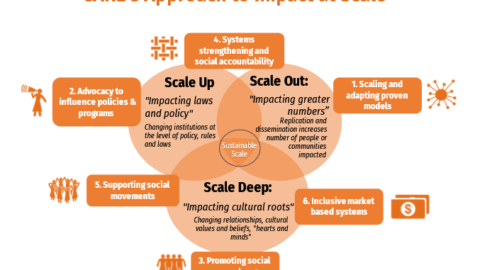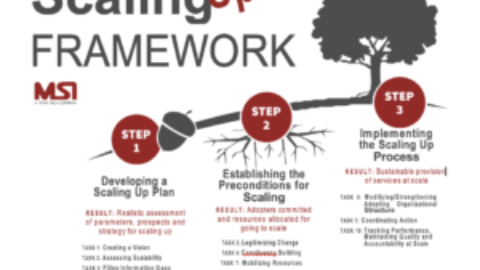By Thomas Feeny tfeeny@r4d.org
With ‘scaling’ now IDIA’s overarching theme for 2019/2020, the IDIA members (comprising 13 major development finance institutions, with R4D serving as the secretariat; see https://www.idiainnovation.org) have set themselves an exciting new goal to collaboratively accelerate the scaling of innovations in an effort to help bend the curve of the SDGs, most of which are currently forecast to miss their targets by 2030. To do so, IDIA agencies will run three Working Groups in 2019/20, each focusing on a different lever through which to accelerate the progress of innovations through their scaling pathways.
1. Gender & Innovation Working Group (GIWG) (Progressing innovations addressing underserved development areas)
Many development challenges appear to be relatively underserved by innovation. This is likely due to a range of factors, including i) a lack of awareness, knowledge and/or understanding of the development challenge itself; ii) a lack of expertise to apply innovation in addressing the challenge; and/or iii) insufficient incentives to develop and scale innovative responses to the challenge. Mobilizing more resources to support innovation in these underserved areas will be important in developing a stronger pipeline of potential responses. To this end, the IDIA Working Group on Gender & Innovation will identify what innovations currently exist to target Gender-Based Violence, profile gaps and opportunities for further innovation, and help to broker the most promising solutions for additional resourcing and support.
2. Artificial Intelligence & Development Working Group (AIWG) (Exploring the ethical use of emerging technologies as a catalyst for scale)
Technology is a both a source of innovation and a key enabler of the innovation process. For example, the rapid penetration of mobile phones globally has almost instantaneously created a platform for all kinds of mobile-based innovative products and services to reach scale. The new wave of emerging technologies (especially artificial intelligence) now offers a similar paradigm shift in how we design, implement and scale development innovation, but is not without its risks in terms of its potential to exacerbate, rather than reduce, socio-economic inequalities. To ensure an ethical, informed approach, the AI & Development Working Group will be looking at the responsible use of AI in development and surfacing both existing AI-enabled innovations for scaling as well as scalable AI functionalities that might be integrated into other innovations for accelerated / expanded development impact.
3. Pipeline Collaboration Working Group (PCWG) (Promoting the wider uptake and accelerated scaling of deployable innovations)
Thanks to the efforts of IDIA members and other development actors over the last decade, an increasing number of innovations are now successfully transitioning to scale and many have already generated significant impact (e.g. as celebrated in the USAID-initiated “Million Lives Club”). However, in order to reach the next level of sustainable scale (i.e. the tens of millions), more targeted activity is required to promote and de-risk these innovations in order to attract/incentivize additional investment and support from both the ‘mothership’ programming departments of IDIA member agencies, as well as external actors from the public and private sectors. The IDIA Pipeline Collaboration Working Group will focus on this challenge with a view to (a) developing common criteria to facilitate the identification of ‘deployable’ innovations from across IDIA member pipelines; and (b) finding ways to mitigate the institutional procurement barriers / disincentives hindering the take-up and scaling of these deployable innovations by internal and external partners.



